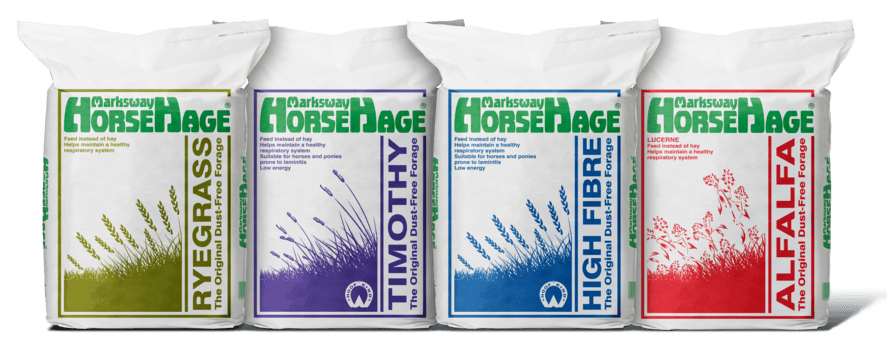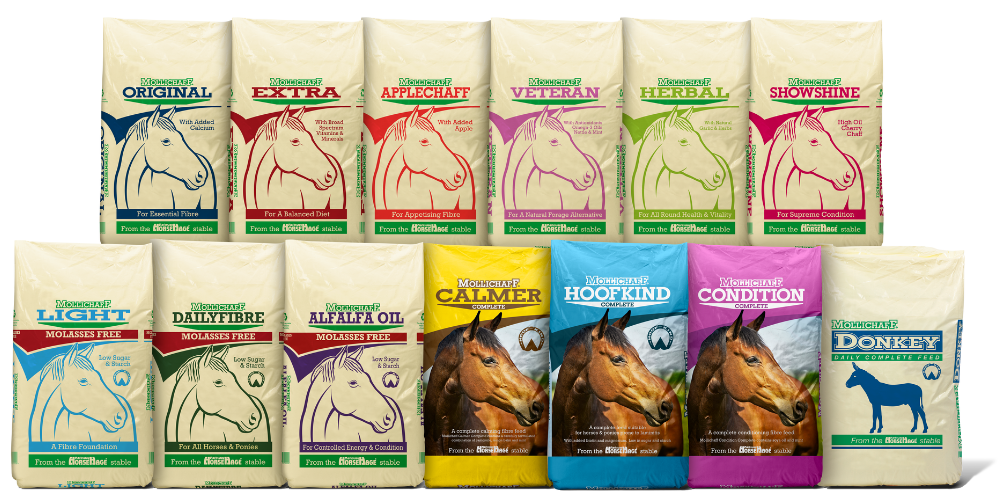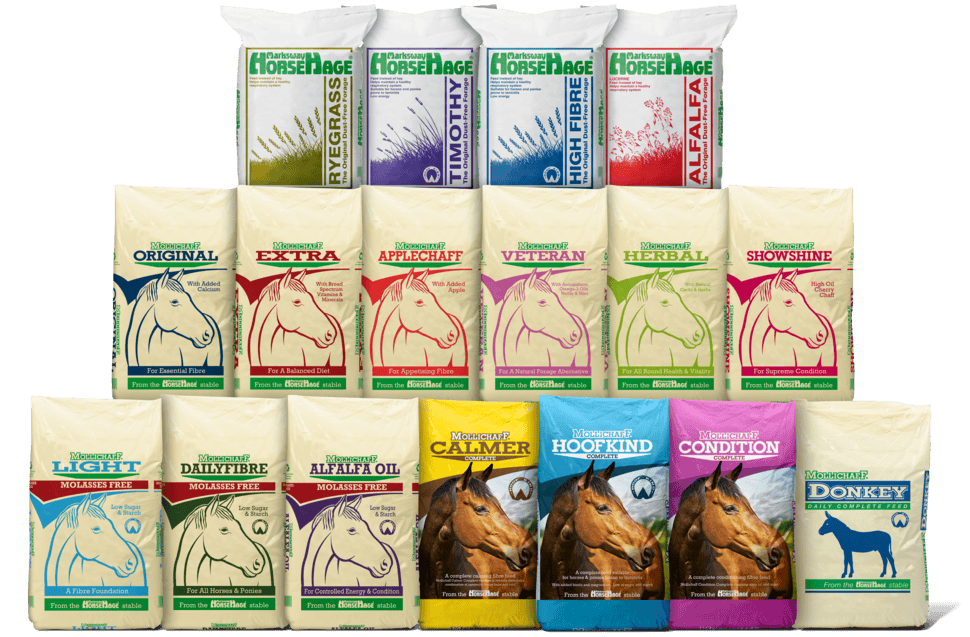Horses have evolved to live on an almost entirely forage-based diet. In the wild, they will graze for up to 18 hours a day, covering many miles in doing so. When you plan your horse’s diet, there are a few basics to remember when deciding what to feed your horse:
Horse Feeds & Haylage for Horses
- Always base your horse’s diet around forage
- You only need to add concentrates to the diet if your horse requires more energy or weight gain. In most cases, a simple change in haylage for horses will promote weight gain e.g. changing from hay to a good quality haylage or from straw-based chaff to an alfalfa-based chaff, such as HorseHage Alfalfa or Mollichaff Alfalfa Oil.
- Lack of energy when exercising your horse, as long as they are not under-weight, in 99% of most cases is due to a schooling problem rather than a feeding one.
- You should always provide salt in your horse’s diet in the form of a pure salt lick in his stable or field if living out all the time.
- If your horse does not require feeding, provide a broad-spectrum vitamin and mineral supplement or a feed balancer in a handful of low sugar chaff.
HorseHage Range
Our HorseHage range comes in four different varieties for you to choose from, ensuring your horse or pony receives the essential nutrients they need.


Mollichaff Range
From high quality chaffs to complete feeds, our Mollichaff range offers a number of different forage choices that are both tasty and healthy.
Types of Horse Feed
There are many types of horse feed to choose from. In order to maintain health and condition, your horse needs to receive a regular supply of certain dietary components or nutrients. Just like humans, daily equine nutrition needs are protein, energy, fibre, vitamins, minerals and water. The horse derives these nutrients from the feed ingredients in his diet. In the wild, the horse would wander many miles searching for grass and other herbage to satisfy these nutrient requirements.
By domesticating the horse, we have not only restricted the pasture they have access to, but that pasture often contains only a very limited number of plant species. Thus, the modern-day horse may not be able to meet his total daily nutrient requirement from his pasture. Available pasture will provide sufficient levels of some nutrients but may be lacking in others and so, the horse will need to have these nutrients supplemented and given to him in another form.
The horse, through evolutionary adaptation which has occurred over a period of 65 million years, has become a ‘trickle-feeder’. His digestive system, with its small stomach and very large, bacteria-filled hind gut is designed to contend with an almost continuous supply of grass and associated herbage.
HorseHage and Mollichaff offer a complete range of fibre-based feeds to meet the nutritional needs of all horses and ponies. There really is something for everyone!
If you’re unsure on the characteristics and benefits provided by different types of horse feed, you’re in the right place!


